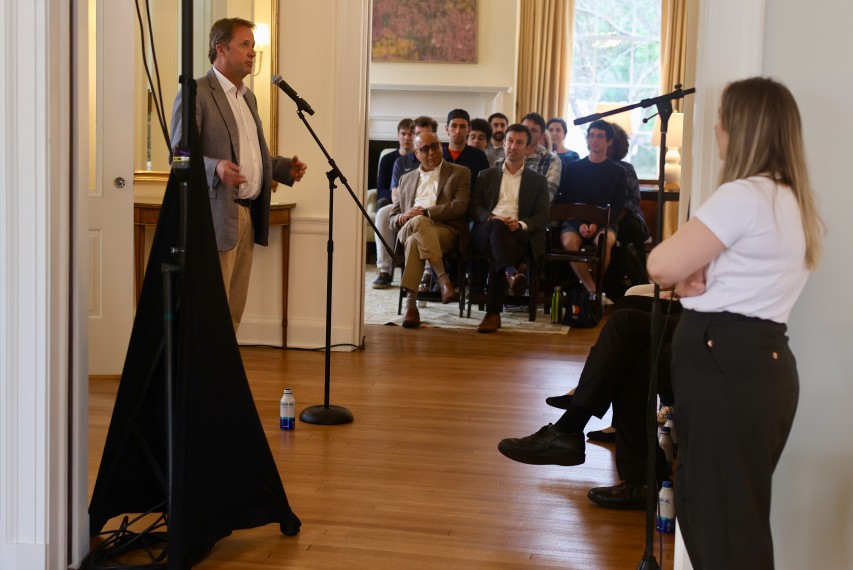
by Wardah Kamran
On April 3rd, Carr’s Hill hosted its third annual “Story Collider: STEM Storytellers on the Hill” event. Four distinguished community members -- Stephanie Rowley, Bill Petri, Kathryn Thornton and Scott Acton -- each shared anecdotes about struggles they faced in their careers.
Among the more than 75 attendees was UVA President Jim Ryan.
“I deeply believe that the more we learn of each other's stories, the stronger of a community we’ll be. And my hope is that, as you leave here, not only will you leave knowing the stories that you're going to hear. But you'll leave more curious about the stories of others. That is, I think, the power of this event,” Ryan said.
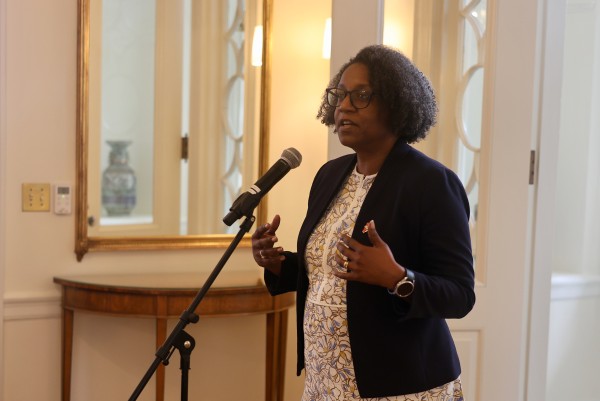
A Charmed Life
Stephanie Rowley, a professor of education and the dean of the School of Education and Human Development, remembered thriving in graduate school. Many even said she lived a charmed life. She didn’t encounter a major obstacle in her career until she got her first professorial job at the University of North Carolina.
Rowley struggled to get a paper published in her first year as a professor. She slowly came to realize that her former collaborators had focused on the written content of her previous articles while she concentrated on the statistics. This led her to struggle to explain the importance of her research in her papers. Rowley would need to improve her writing ability if she wanted to get published.
Rowley embraced the vulnerability that comes with asking for help and reached out to her graduate school friends. Rowley received helpful feedback from her former classmates, and eventually published her first paper.
“I still remember my 2000 single-authored paper that was published — that wasn't the best paper or in the best journal — but I knew that it reflected a lot of hard work and a lot of humility,” Rowley said.
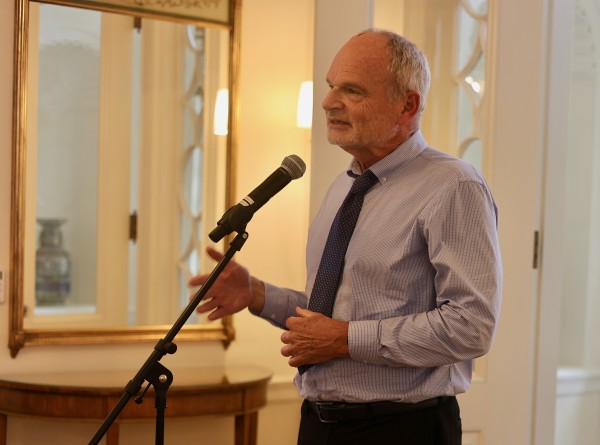
The Best Team Sport
In 2010, Bill Petri became the chief of the Division of Infectious Diseases and International Health at UVA.
Petri described how one of his first goals was to secure funding from the Gates Foundation. However, it was difficult to find a reason for the sponsorship as the Gates Foundation focused on polio while UVA focused on diseases that caused diarrhea.
By measuring antibodies in plasma, Petri eventually discovered that the more diarrhea a child had, the less effective the polio vaccine was. Petri was ready to pitch this new area of research to the Gates Foundation when he realized he lacked experience with the polio vaccine.
“The big thing about science is that it's not one person alone at night in the lab pipetting something into a test tube. It's the best team sport there is,” Petri said.
With the help of other experts, Petri was able to convince the Gates Foundation to fund the research.
The funding helped reduce the number of children paralyzed by polio from tens of thousands to around one hundred. UVA is now working on developing a better polio vaccine to reduce the number of doses needed to eradicate the disease.
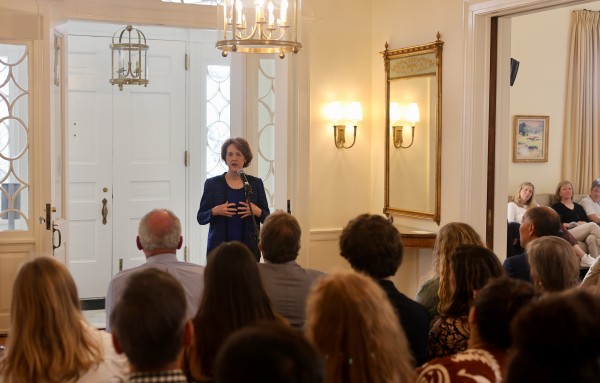
When Things Go Sideways
Kathryn Thornton, a professor emeritus of engineering and member of the U.S. Astronaut Hall of Fame, recounted her team being sent to rescue the International Telecommunications Satellite, Intelsat, after it landed in the wrong orbit.
In space, Thornton’s team ran into a problem — the mechanical arm on the shuttle couldn’t grab Intelsat and, instead, sent it spinning in an unexpected direction.
“It's sort of a basic principle in aviation and spaceflight that you fly like you train. When you're going to an environment that is totally foreign to your normal, everyday life and you maybe never been there before and you only have one chance to get it right you learn to depend on the accuracy and the fidelity of simulators,” Thornton said.
No simulator had prepared Thornton for this.
When astronauts on the ground successfully simulated putting three people in the two-person airlock, three crew members were sent to catch the satellite. After fixing the satellite, a second problem arose — the satellite would not deploy.
After discovering they had trained on a simulator that didn’t match the console in the actual shuttle, the crew pinpointed the difference and deployed Intelsat.
Thornton’s crew returned home and Intelsat lasted 23 years. Eighteen months later, the knowledge from this mission helped Thornton repair the Hubble telescope 18 months later.
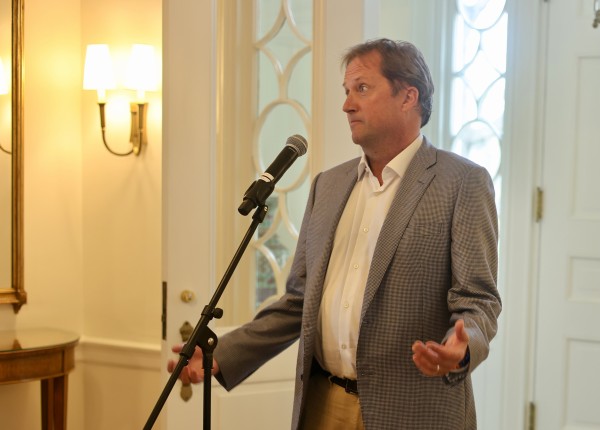
In Due Time
Scott Acton, a professor and the chair of Electrical and Computer Engineering, revealed his fantasy of becoming a famous writer.
Despite being raised in a bookish family, Acton struggled in his English classes and was eventually led away from his dream of becoming a novelist.
During this time, Acton’s father brought home the Commodore PET, an early personalized computer. Acton made his first program on this device, which was later sold by a software company.
When the Commodore 64, another personal computer, was preparing for release, Acton was asked to create a video game for it. The game was a success, launching Acton’s career in computing.
Decades later, Acton was able to carve out time to write a novel called “Jefferson Oklahoma.” He submitted the story to a novel contest and, months later, received an award in the New Novelist category.
“That little piece of paper was probably worth five cents, but it couldn't have been worth any more to me. It was like somebody tapping me on the shoulder and saying you wrote something good. And for the first time, I felt like I was a writer,” Acton said.
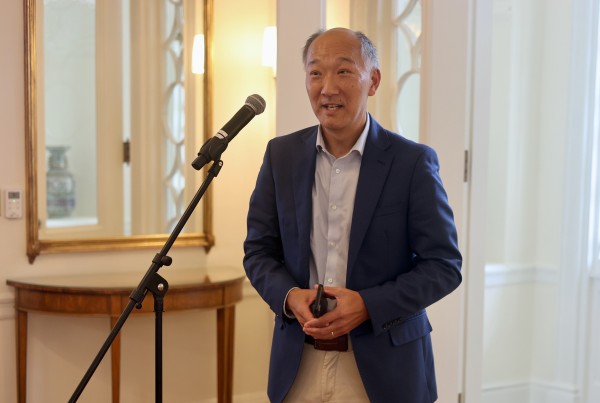
The Story Collider at UVA
It was Ken Ono, the Stem advisor to the provost and the Marvin Rosenblum Professor of Mathematics, who proposed bringing The Story Collider, a nonprofit organization that honors voices in STEM, to Grounds. This year, the Office of the President, the Office of the Provost, and the Office of the Vice President for Research co-sponsored the event.
“We invite some of the most distinguished STEM figures at the University to tell stories, and almost everyone tells a story about overcoming an obstacle. For students and colleagues, recognizing that a distinguished UVA STEM faculty member or dean has these stories too is empowering,” Ono said
Research by The Story Collider revealed that when scientists share their stories, people view the field as more relatable, trustworthy and interesting.
“The whole point of The Story Collider, and why we get scientists to tell stories, is to show the human side of science. To show that scientists are like everyone else,” said Misha Gajewski, the managing producer at The Story Collider.
The full stories can be heard on The Story Collider podcast and the Hoos in STEM podcast.